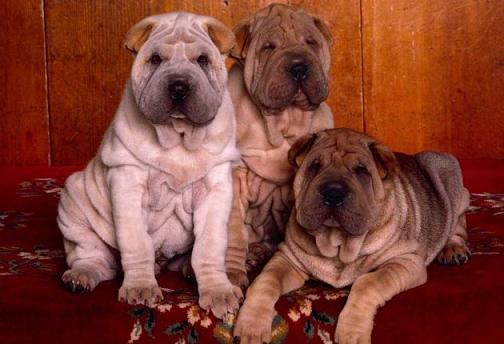What is parvovirus in dogs?
Also known as "parvo", parvovirus is a serious & often deadly disease caused by the highly infectious parvovirus. It was first described in the 1970's.
Parvovirus attacks rapidly dividing cells within the body, commonly involving the gastrointestinal tract, lymph nodes & bone marrow. A less common form of parvovirus affects the heart muscle.
It is spread via infected feces where high numbers of the virus are shed. Infection occurs via direct or indirect contact with infected feces. The virus can survive for months in the environment (bedding, kennels etc).
Unvaccinated puppies are most at risk of infection although adult dogs can also become infected. For reasons unknown, Dobermans, Rottweilers & Pit bulls are more susceptible to the disease than other breeds of dog.
The virus attacks rapidly diving cells in the lining of the gut, bone marrow tissue is also affected, causing destruction of the white blood cells makes the dog vulnerable to secondary bacterial infections.
What are the symptoms of parvovirus in dogs?
Some dogs will be asymptomatic. This means that they are shedding the virus but are showing no symptoms of disease. This is common in dogs over 12 months of age & dogs who have been vaccinated.
Symptoms of parvovirus come on quickly & include;
- Loss of appetite
- Depression
- Abdominal pain
- Lethargy
- Foul smelling, bloody diarrhea
- Vomiting
- Severe dehydration
How is parvovirus diagnosed?
Your veterinarian will perform a complete physical examination & obtain a medical history from you. There are other diseases with similar symptoms to parvovirus so your veterinarian will need to perform tests. These may include;
- Testing the feces for presence of the virus.
- Blood tests to check for antibodies to the virus.
How is parvovirus treated?
There is no cure for parvovirus, once infected supportive care is required while the dog's immunity fights off the virus. Dogs who survive past 5 or so days will usually pull through.
Hospitalisation is required in all but mild cases of parvovirus. Most veterinarians will withhold food until symptoms begin to abate, at which time a very bland diet will be slowly introduced.
Treatment may include;
- Fluid therapy to treat dehydration & electrolyte imbalances.
- Antibiotics to prevent septicemia & fight off secondary bacterial infections.
- Anti nausea medication.
- Pain medication may be provided in severe cases.
Prevention of parvovirus:
Thorough disinfection of quarters of infected animals is required. The virus is extremely hardy & resistant to most household disinfectants. Bleach at a dilution of 1:32 is most effective. The bleach will need to remain on the surface for 20 minutes.
